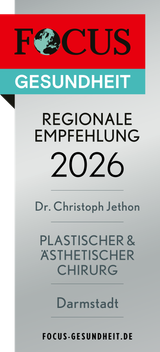Benefits of nutrient therapy
- Gentle treatment: Nutrient therapy without surgical procedures
- Targeted stimulation: Encourages the formation of new blood vessels in the penis
- Support of function: May support natural sexual function
- Possible improvement: Some patients report longer-lasting erections
- Individual perception: Sexual experience ability can be affected differently by individuals
- Personal care: Individually tailored and trustworthy consultation
The results of a treatment are individual and depend on personal factors. A thorough consultation clarifies possibilities and limitations.
Erection and male sexuality
Expressing sexuality can contribute to a man's wellbeing. Sexual activity can affect various bodily functions.
Sexual arousal in men often manifests as an erection, which tenses the penis and can increase sensitivity. It can be distressing when, despite sexual desire, a sufficient erection does not occur or cannot be maintained, even with manual stimulation.
For some affected individuals, surgery may seem like an option. However, there are also non-operative treatment methods for erectile dysfunction. One of these is the use of endogenous vital and growth substances to support penile blood flow.
What is erectile dysfunction?
How does erectile dysfunction affect wellbeing?
Erectile dysfunction, medically known as erectile disorder, can affect wellbeing and quality of life. The difficulty in achieving or maintaining an erection sufficient for sexual activity is not only a physical issue but can also touch psychological and emotional feelings. A functioning ability to achieve an erection can contribute to psychological balance.
What effects can erectile dysfunction have on personal life?
The effects of erectile dysfunction can be diverse. In addition to the physical limitation, it can affect self-esteem. Stress, anxiety, or depressive moods can occur or be exacerbated. Relationships can also be affected, as intimacy and connectedness may suffer. The search for a solution is made harder for some men by the fear of invasive procedures. Non-operative methods based on endogenous processes can represent an alternative here.
What causes erectile dysfunction?
What physical causes are there?
Erectile dysfunction can be triggered by various physical factors. Often, impaired penile blood flow is a cause. Sufficient blood flow is necessary for an erection. If this process is disturbed, for example by cardiovascular disease, diabetes, or high blood pressure, it can lead to erectile problems.
Hormonal imbalances, such as low testosterone, can also play a role. With increasing age, testosterone levels may decline, which can affect libido and erectile ability. Other chronic diseases and side effects of medications can also impair sexual function.
What psychological factors play a role?
Psychological causes are also relevant. Stress, emotional burdens, relationship problems, and mental illnesses such as depression or anxiety disorders can influence sexual performance. These factors can act directly or indirectly, e.g., through reduced sexual desire or impaired self-confidence.
How do physical and psychological factors interact?
Physical and psychological factors often occur together and can influence each other. For example, cardiovascular disease that leads to erectile problems can cause additional stress, which can further impair sexual function.
Who is affected and what can be done for prevention?
Erectile dysfunction is a common health issue that can affect men of various ages, with the likelihood increasing with age. In Germany, estimates suggest several million men are affected. Work-related stress can also play a role in younger men.
Prevention can be supported by a healthy lifestyle: regular exercise, a balanced diet, avoiding risk factors such as smoking and excessive alcohol consumption. Managing existing health problems such as diabetes or high blood pressure and paying attention to mental health are also important.
How is erectile dysfunction diagnosed?
An accurate diagnosis includes a detailed medical history and examination. Dr. Christoph Jethon takes into account physical aspects, sexuality, lifestyle, and social environment. Open communication between doctor and patient is important to capture all relevant factors and develop a suitable treatment strategy.
Nutrient therapy: A non-operative treatment option
How does Dr. Jethon's nutrient therapy work?
The nutrient therapy, applied by Dr. Christoph Jethon, is a non-operative treatment option for erectile dysfunction. It uses endogenous nutrients applied in concentrated form. These are intended to stimulate the penile corpora cavernosa to form new blood vessels and thereby promote blood circulation. The goal is to support erectile ability. Patients report varying individual changes in erection strength, duration, sensitivity, or penis size.
What benefits can nutrient therapy offer?
Dr. Jethon's nutrient therapy is a non-invasive procedure. It can be an option for men seeking a gentle treatment method. In addition to supporting sexual function, some patients report improved sexual experience ability. Individual results and perceptions can vary. Possible effects such as improved blood flow, changes in size, or in pleasure sensation are described differently by patients and are not guaranteed.
Dr. Jethon's approach to men's health
Dr. Christoph Jethon, a specialist with experience in male intimate surgery and aesthetic medicine, considers the impacts of erectile dysfunction on men's lives. His treatment approach at PraxisClinic Jadore aims to support his patients' sexual health and wellbeing. Individual care and a trusting atmosphere are important to him. Personal consultation is central to provide each patient with appropriate information and education. Risks and possible complications are explained in a personal conversation.









